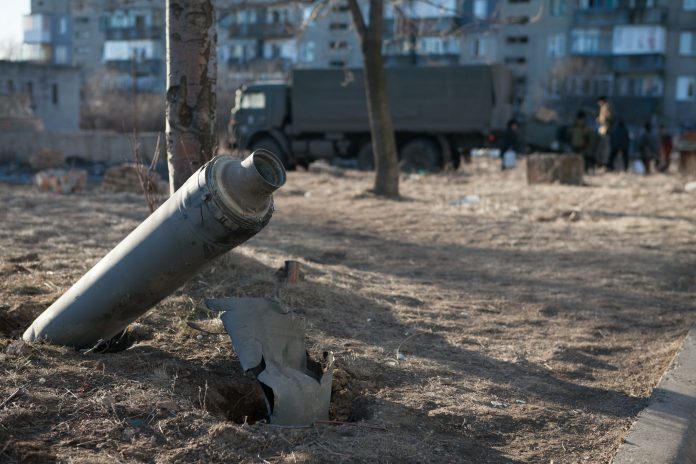Europe is dealing with a very “hot war” in Ukraine, according to Ambassador Kurt Volker, while the US Special Representative for Ukraine lashes out against Nord Stream II project.
A hot rather than frozen conflict
The US Special Representative for Ukraine was briefing the press on Thursday, following a fact-finding mission in Eastern Ukraine.
Since the Minsk Agreement there has “never been” a ceasefire, Ambassador Volker noted.
He underscored that Ukraine is experiencing a deteriorating humanitarian situation over time, with critical infrastructure such as water, telecommunication, health and waste management rapidly eroding. As regards to health, Eastern Ukraine is faced with a humanitarian crisis, facing a antibiotic-resistant strain of tuberculosis and nuclear waste contamination.
Meanwhile, sniper shootings and mine explosions are a daily occurrence.
Degrading humanitarian situation over time: infrastructure, water, telecommunications; health sector: tuberculosis; environmental damage 9mines damage), nuclear waste; physical risks: snipers, mortars, landmines. According to the OSCE, last week alone there were 7,000 violations of the ceasefire agreement, with a cumulative civilian toll of over 10,000 dead and 1,5 million internally displaced.
“We’re prepared to help with the deployment of the UN mandated peacekeeping force to establish security in the area, and to help with the implementation of the Minsk Agreements, Volker said, although Russia has yet to respond to the US proposal for an international peacekeeping force.
Meanwhile, Ambassador Volker accused Russia of using 77 so-called “humanitarian convoys” to replenish the ammunition and supplies of the separatist forces. There is “no ambiguity” over the support of Russia for these forces, Volker said.
Hint of Euro-Atlantic tension
Meanwhile, the Ambassador’s criticism of the lack of EU solidarity was subtle, focusing mainly on the Nord Stream II project.
The Russo-German project, according to Ambassador Volker, constitutes a deviation from the strategy of supply diversification: its does not add supply capability but replaces it, Ambassador Volker noted, giving Russia a stronger hold over the European market.
While the Ukrainian economy does not depend on transit fees and the economy is back to stead growth, the EU appears to be facing a policy contradiction.
“I’m aware that the Commission has issued a report saying that the nature of this project is not in compliance with European rules on competition. The Council has suggested that because it is offshore, those rules don’t apply. I hope that the European Union, all of these entities, all of these bodies continue to take a close look at this because it does seem to be going very much against the EU’s own stated policy on diversification of the gas market, sources of supply and routes of supply,” Volker said.

